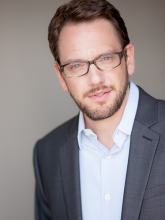Member Since 2004
Dr. Douglas Mennin has developed an active program of research in clinical trials and basic research into the nature of chronic and recurring bouts of anxiety and mood disorders, particularly worry, stress, and depression. He has conducted numerous studies of the basic psychological and physiological mechanisms of generalized anxiety and depression and regularly conducts psychotherapy outcome and mechanism research. Specifically, he has been developing an emotion regulation-based approach to treatment that integrates basic affect science and neuroscience and delineates a number of cognitive, physiological, and neural mechanisms that may help explain how the therapy is effective. Along with colleagues at Memorial Sloan Kettering Cancer Center and in Denmark, he has also recently adapted this approach to treat distressed caregivers of patients with cancer. Read more about Dr. Mennin.
Dr. Mennin and ADAA
"I joined ADAA over 20 years ago after attending the conference my first year in grad school. I remember being struck at how much ADAA cared about understanding anxiety and helping those suffering about it. Their mission was clear and it seemed they wanted to do something to make a real difference. This initial observation is what I have observed time and again from ADAA. I have continued to be impressed over these many years. As the Chair of the Scientific Council, I am excited to actively contribute to that multi-pronged mission and aid the organization in elucidating the science of anxiety and depression as well as providing my services to help ADAA get the word out to the public and improve the lives of those suffering from these conditions."






